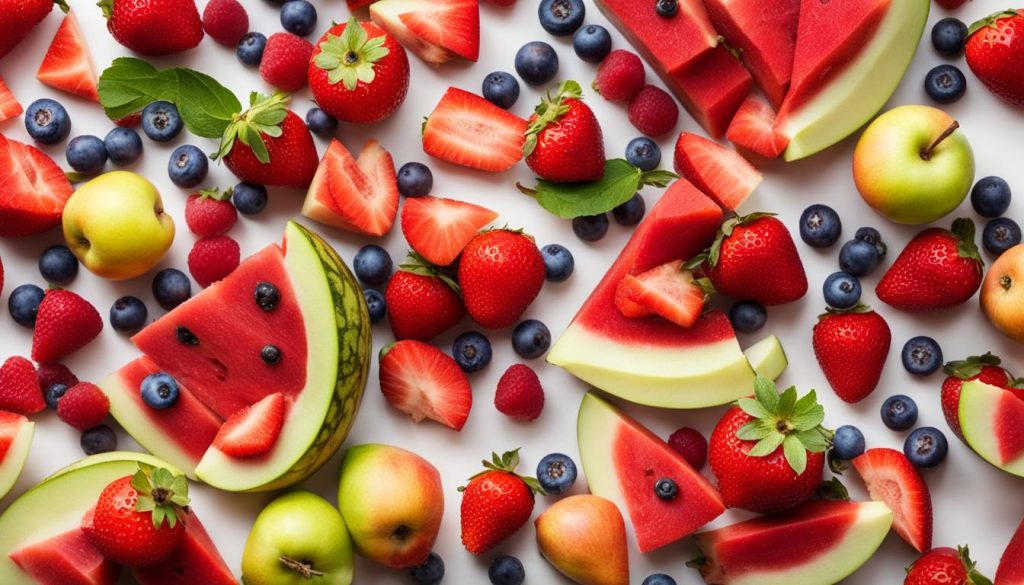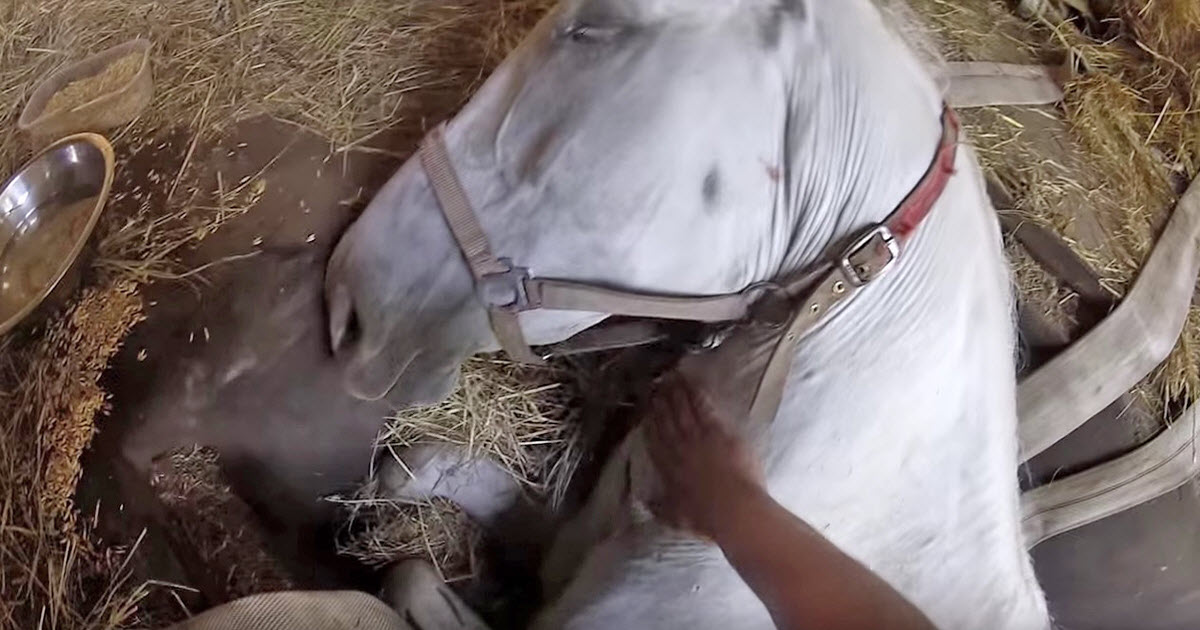Giving your guinea pig a balanced diet is essential for their overall health and well-being. As a responsible pet owner, you may wonder, “Can guinea pigs eat carrots?” Let’s explore the nutritional value of carrots for guinea pigs and learn how to incorporate them into their diet.
Guinea pigs require a variety of foods in their daily diet, including pellets, hay, and fresh vegetables. Carrots can be included as part of their diet, but it’s important to do so in moderation. While carrots are a good source of vitamin A, they are also high in sugar and carbohydrates. Too much sugar can potentially lead to weight gain and other health issues in guinea pigs.
Can Guinea Pigs Eat Carrots? Yes. However, it’s not recommended.
- Carrots can be a part of a guinea pig’s diet but should be given in moderation due to their high sugar content.
- Hay should make up around 80% of a guinea pig’s daily intake and is essential for digestion and dental health.
- Pellets fortified with vitamin C should be given in small portions, along with hay and fresh vegetables, to ensure proper nutrition.
- Offer a variety of fresh vegetables, especially leafy greens, to provide essential nutrients and prevent boredom.
- Fruits can be given as occasional treats, but be mindful of their high sugar content and limit portion sizes.
The Importance of Grass Hay in a Guinea Pig’s Diet
When it comes to a guinea pig’s diet, one component that should never be overlooked is grass hay. Grass hay plays a vital role in the overall health and well-being of these adorable pets. It makes up approximately 80% of their daily intake, providing numerous benefits to their digestion and dental health.
There are different types of grass hay that are suitable for guinea pigs. Timothy hay is a popular choice for adult guinea pigs, as it is lower in calcium and protein. Orchard hay is another excellent option that can provide variety in their diet. Alfalfa hay, on the other hand, is particularly beneficial for younger guinea pigs due to its higher calcium content.
Guinea pigs have continuously growing teeth, and chewing on grass hay helps wear them down naturally. This not only prevents dental problems but also provides them with a stimulating activity. Additionally, the high fiber content in grass hay supports proper digestion, preventing issues such as gastrointestinal stasis. Therefore, providing unlimited access to fresh grass hay is of utmost importance for maintaining a healthy guinea pig.
The Dental Health and Digestive Benefits of Grass Hay
Guinea pigs’ teeth grow continuously throughout their lives, and without proper wear, they can develop dental problems. Chewing on grass hay helps grind their teeth down naturally, preventing overgrowth and associated issues like pain, abscesses, and difficulty eating. This makes grass hay an essential part of their diet.
Furthermore, the high fiber content in grass hay aids in proper digestion. Guinea pigs have a sensitive digestive system that requires a diet rich in fiber to maintain healthy gut motility. The fiber in grass hay helps regulate their digestion, preventing conditions such as diarrhea and constipation.
Grass hay is an essential component of a guinea pig’s diet. It promotes dental health by wearing down their teeth and supports proper digestion through its high fiber content. Remember to provide an unlimited supply of fresh grass hay to ensure the well-being of your furry friend.
The Role of Pellets in a Guinea Pig’s Diet
Giving guinea pigs a balanced and nutritious diet is essential for their overall health and well-being. While hay and fresh vegetables play a significant role in their diet, pellets also have an important place. Guinea pig pellets are specially formulated to provide the necessary nutrients for their growth and development.
Vitamin C in guinea pig pellets: One of the key benefits of guinea pig pellets is that they are fortified with vitamin C. Guinea pigs cannot produce their own vitamin C, so it’s crucial to ensure they receive an adequate amount in their diet. Vitamin C is essential for their immune system, as well as overall health and vitality.
Suitable pellets for guinea pigs: When choosing guinea pig pellets, opt for those made from timothy hay. Timothy-based pellets are more suitable for adult guinea pigs, while alfalfa-based pellets are better suited for young guinea pigs who require extra calcium. Avoid pellets that contain seeds, nuts, or dried fruits, as these can be harmful to your furry friend.
Feeding guinea pig pellets: Pellets should be given in small portions, around 1/8 cup per day, to prevent overfeeding. Overfeeding pellets can lead to obesity and other health problems. It’s important to supplement the pellets with fresh hay and a variety of fresh vegetables to ensure a balanced diet. Remember to replace the pellets daily to maintain freshness and the vitamin C content.
Commercial food for guinea pigs: While pellets are an important part of a guinea pig’s diet, they should not be the sole source of nutrition. Commercial food, including pellets, should be used as a supplement to provide additional nutrients. Fresh hay and vegetables should still form the bulk of their diet to promote proper digestion and overall health.
By incorporating high-quality pellets into your guinea pig’s diet along with hay and fresh vegetables, you can ensure they receive a well-rounded and balanced nutritional intake. Remember to consult with your veterinarian for personalized dietary advice and to monitor your guinea pig’s weight and overall health regularly.
Fresh Vegetables for a Healthy Guinea Pig Diet
When it comes to providing a balanced and nutritious diet for your guinea pig, incorporating fresh vegetables is essential. Not only do they offer a variety of flavors and textures, but they also provide important vitamins and minerals that contribute to your pet’s overall well-being. Leafy greens, in particular, are a great choice for guinea pigs as they are rich in essential nutrients and low in calories. Romaine lettuce, spinach, and kale are excellent options that can be included in their daily vegetable intake.
One key benefit of including fresh vegetables in your guinea pig’s diet is the high vitamin C content they offer. Guinea pigs, just like humans, cannot produce their own vitamin C and rely on external sources. Vegetables like peppers and broccoli are not only packed with vitamin C but also provide additional antioxidants that support the immune system and promote good health.
Safe and Varied Vegetable Options
When selecting vegetables for your guinea pig, it’s important to choose safe options that won’t harm their digestive system. Avoid feeding them vegetables like onions, garlic, and potatoes, as these can be toxic to guinea pigs. Instead, opt for a variety of safe vegetables such as carrots, bell peppers, and broccoli florets. These choices provide essential nutrients while adding variety to your guinea pig’s diet.
Remember, moderation and variety are key when it comes to offering fresh vegetables to your guinea pig. Aim for approximately 1/2 to 1 cup of vegetables per guinea pig per day, and ensure that you change up the selection to keep things interesting for your furry friend. By including a range of leafy greens and vitamin C-rich vegetables, you can provide a well-rounded and nutritious diet for your guinea pig.
The Role of Fruit in a Guinea Pig’s Diet
When it comes to a guinea pig’s diet, fruits can play a small but delightful role. While guinea pigs primarily need hay, pellets, and fresh vegetables for their nutritional needs, fruits can be offered as occasional treats. It’s important to remember that fruits should be given in moderation due to their high sugar content.

Safe Fruits for Guinea Pigs
Some safe and healthy fruits for guinea pigs include kiwis, strawberries, and citrus fruits. These fruits are not only tasty but also contain a good amount of vitamin C, which is essential for a guinea pig’s overall health. However, it’s crucial to keep the portion size small to avoid overloading their diet with excess sugar.
For instance, a small wedge of orange or apple, a few blueberries, or a thin slice of banana can be sufficient as a fruit treat for guinea pigs. Remember, it’s always better to err on the side of caution and offer smaller portions to ensure the well-being of your furry friend.
Introducing New Foods and Feeding Tips for Guinea Pigs
As responsible guinea pig owners, we want to ensure that our furry friends have a healthy and balanced diet. Introducing new foods to your guinea pig’s diet can be an exciting adventure, but it’s important to do so gradually to avoid any digestive upset. Start by offering small portions of new fruits and vegetables and observe how your guinea pig reacts. If there are no adverse effects, you can gradually increase the portion size.
When it comes to feeding guinea pigs, it’s crucial to remove any uneaten food from their cage to prevent spoilage. Guinea pigs have sensitive digestive systems, and leftover food can quickly become a breeding ground for harmful bacteria. Regularly removing uneaten food will help ensure that your guinea pig’s diet remains fresh and free from contamination.
Proper portion size is key to maintaining a healthy weight for your guinea pig. Overfeeding can lead to obesity and other health issues. As a general guideline, a guinea pig should consume about 1/8 cup of pellets per day, along with an ample serving of fresh hay and vegetables. Adjust the portions based on your guinea pig’s individual needs and monitor their weight regularly.
Healthy Feeding Habits for Guinea Pigs
Establishing healthy feeding habits is essential for the overall well-being of your guinea pig. Alongside introducing new foods gradually and removing uneaten food, it’s important to provide a varied and balanced diet. This includes offering a variety of fresh vegetables and leafy greens, which are rich in essential nutrients. Remember to avoid foods that are toxic to guinea pigs, such as chocolate, onions, and avocado.
Always ensure that your guinea pig has access to fresh hay and water. Grass hay is a vital component of their diet, aiding in digestion and promoting dental health. Fresh water should be provided in a clean and accessible bottle or bowl, and it should be changed regularly to ensure it remains fresh and free from contaminants.
By following these feeding tips and practicing healthy habits, you can provide your guinea pig with a nutritious and well-rounded diet. Remember to consult with a veterinarian who specializes in guinea pigs for personalized dietary advice for your furry friend.
The Importance of a Healthy and Balanced Diet for Guinea Pigs
A well-rounded and nutritious diet is vital for the overall health and well-being of guinea pigs. Opting for a balanced diet can help prevent various health issues and ensure that your furry friend thrives. A key component of a guinea pig’s diet is fresh hay, which aids in digestion and also helps wear down their continuously growing teeth. Include a variety of hay such as timothy or orchard hay for adult guinea pigs, while younger ones may benefit from the calcium content in alfalfa hay.
In addition to hay, pellets form an important part of a guinea pig’s diet. Look for pellets that are made from timothy and fortified with vitamin C, as guinea pigs cannot produce this essential nutrient on their own. However, it is essential to feed pellets in small portions, around 1/8 cup per day, to ensure the vitamin C content remains effective. Avoid pellets that contain seeds or dried fruits, as these can be harmful to guinea pigs.
Importantly, fresh vegetables must be included in a guinea pig’s diet to provide essential vitamins and minerals. Leafy greens like romaine lettuce, spinach, and kale should make up a significant portion of their vegetable intake. Other safe options include red or green peppers, broccoli, and carrots. By offering a variety of vegetables each day, you can ensure your guinea pig receives a wide range of nutrients.
The Role of Diet in Preventing Health Issues
A healthy and balanced diet plays a vital role in preventing health issues commonly seen in guinea pigs. Bladder stones are a common concern, and providing a diet that is low in calcium and high in hydration can help prevent their formation. Hay and water should be readily available to ensure proper digestion and hydration, preventing urinary issues in guinea pigs.
The diet also has a direct impact on dental health. Guinea pigs’ teeth continuously grow throughout their lives, and a diet rich in hay helps wear down their teeth naturally. Offering appropriate hay and avoiding diets that are too soft or lack fiber can prevent dental disease and related complications.
Keeping your guinea pig’s diet well-balanced and providing them with fresh hay and water is essential for their overall health and longevity. By establishing healthy feeding habits, you can help ensure that your furry friend enjoys a happy and active life.
Conclusion
Guinea pigs can eat carrots as part of a balanced diet, but it’s important to give them in moderation due to their high sugar content. To ensure a healthy and balanced diet for your guinea pig, focus on providing grass hay, pellets, and fresh vegetables as the main components of their daily meals. Fruits can be given occasionally as treats.
When introducing new foods to your guinea pig, it’s best to do so gradually and monitor their response. This will help prevent any gastrointestinal upset. Remember to remove any uneaten fruits and vegetables from their cage to prevent spoilage.
Maintaining a healthy and balanced diet is crucial for the well-being of your guinea pig and can help prevent various health issues such as bladder stones, dental disease, and obesity. It’s always a good idea to consult a veterinarian for personalized dietary advice specific to your pet guinea pig.
FAQ
Can guinea pigs eat carrots?
Yes, guinea pigs can eat carrots as part of a balanced diet. However, they should be given in moderation due to their high sugar and carbohydrate content.
What is the importance of grass hay in a guinea pig’s diet?
Grass hay is crucial for guinea pigs as it aids in digestion and helps wear down their continuously growing teeth. It should make up around 80% of their daily intake.
What role do pellets play in a guinea pig’s diet?
Guinea pig pellets should be made from timothy and fortified with vitamin C. They are an important source of nutrients and should be given in small portions along with hay and fresh vegetables.
How can I incorporate fresh vegetables into my guinea pig’s diet?
Fresh vegetables should be offered once a day and make up about 1/2 to 1 cup per guinea pig per day. Leafy greens such as romaine lettuce, spinach, and kale should form the majority of their vegetable intake.
Can guinea pigs eat fruits?
Yes, guinea pigs can eat fruits as an occasional treat. Fruits high in vitamin C, such as kiwis, strawberries, and citrus fruits, are good options. However, portion sizes should be small due to the high sugar content.
How should I introduce new foods to my guinea pig’s diet?
It’s important to introduce new foods gradually to avoid gastrointestinal upset. Monitor their response and adjust the portions accordingly. Uneaten fruits and vegetables should be removed from the cage to prevent spoilage.
Why is a healthy and balanced diet important for guinea pigs?
A healthy and balanced diet is essential for preventing health issues such as bladder stones, dental disease, and obesity in guinea pigs. It helps maintain their overall well-being and ensures they receive necessary nutrients.






